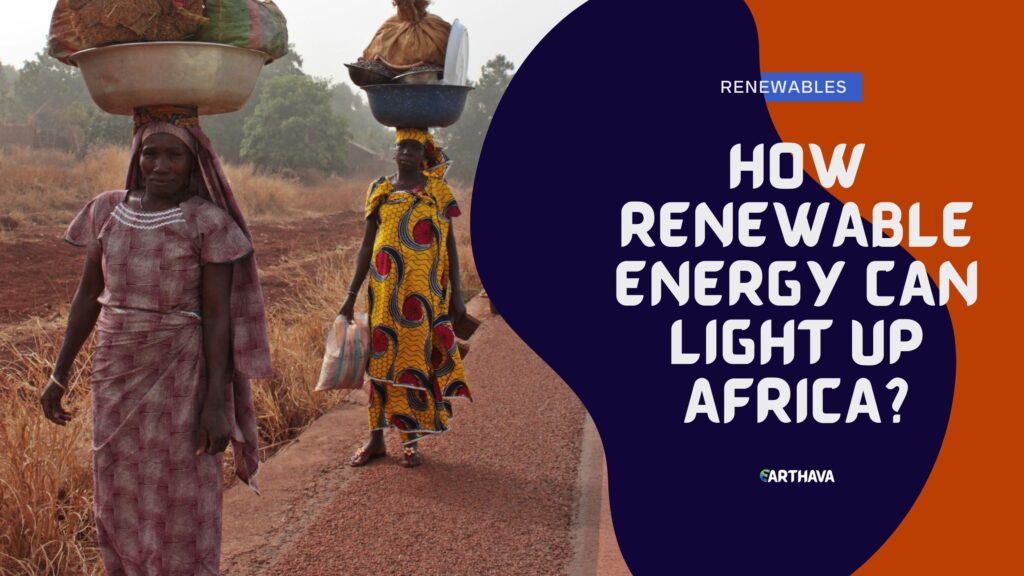Recently, the interest in investing in renewable energy has risen substantially. Third-world countries like Afghanistan, Albania, and Costa Rica have already made the necessary transitions to renewable energy.
However, African countries are still lagging in investing in renewable energy. According to The Conversation, 110 million of the 600 million people in African countries still have no access to electricity. But with so many sustainable energy resources, African countries are missing out in many aspects, not only in providing their population with electricity but in leaving so many people out of other benefits that investing in renewable energy can bring.

Recently, the European Union has announced the Africa-Europe Alliance for increasing investments in sustainable energy. This alliance has a goal to boost strategic investments in sustainable energy in Africa. How can it benefit African People? Let’s take a look.
1. Job Opportunities
Investing in sustainable energy results in creating new opportunities for employment. Most African countries often face difficulties when it comes to providing enough work opportunities for the population. For example, Business Ghana reports that unemployment is the most important problem in Africa as identified by over 45,000 survey participants.
Opposite to fossil fuel technologies, renewable energy requires a lot of manual labor. Sustainable energy technologies require technicians who will install solar panels and operate wind farms. And these are only a few options, for how people can be employed in this sphere. Larger renewable energy fields like solar energy or hydropower require a huge staff of employees to operate large plants that produce sustainable energy.
The sustainable energy sector can bring a lot of new job opportunities, and the more countries invest in it, the more people will be provided with a workplace. Only in 2017, more than half a million jobs around the world were created in the renewable energy sector. And with Africa’s potential, investing in sustainable energy can help governments annihilate the problem of unemployment.
2. Improvement of Education and Public Health
Education
Education in Africa is another burning issue. This problem gets even worse under the pressure of problems with electricity. For instance, in sub-Saharan Africa, 65% of primary schools lack the most basic access to electricity.
Investment in renewable energy gives African countries the opportunity to get uninterrupted access to electricity, which will provide all schools across Africa with enough power. Many countries face the problem of refugees who leave their hometowns in search of better opportunities, among which is getting a high-quality education.
Education in many African countries lacks a lot of things like professionals teaching students necessary skills like writing a college paper or even reading. There’s also a problem with facilities and the issue of free access to educational resources. However, investments in renewable energy can solve this problem, as it is a good push towards the success of the economy.
Public Health
Public health in many African countries also suffers from a lack of electricity. World Health Organization says that 1 in 4 health facilities have no reliable access to electricity. Investing in renewable energy will help the African population get the necessary treatment, and the rise of the economy (as the result of investments in sustainable energy) will provide hospitals with the necessary equipment.
Moreover, producing sustainable energy will have a less harmful effect on the environment and will decrease water, air, and soil pollution, which is a big issue for public health.
3. Climate Change
Climate changes greatly affect the welfare of the African population. Voice of America reports that Africa’s rapidly growing cities are in danger because of the effects of climate change.
The disruption caused by climate change has forced world leaders to review possible solutions to reverse this deadly issue. Intensive investments in renewable energy are one of the ways out of this seemingly irreversible change. African countries can make their contribution by focusing on green energy.
The problem is that African countries don’t pay enough attention to the harm they cause to the environment. They not only put millions of people and their infrastructure in danger, but they also ruin precious ecosystems around the continent. Quartz Africa reports that one of the most picturesque places in Africa – Mpumalanga in South Africa – is destroyed by nitrogen dioxide produced by the plant located in that area. This issue should be resolved as quickly as possible to prevent irreversible consequences.
The Bottom Line
Investments in renewable energy can bring a lot of benefits to the people in Africa. Countries there have all the resources – wind, and solar power – for producing sustainable energy and supporting the population. Hopefully, the joint effort of the African countries and their partners around the world will help create all necessary opportunities for the African population.


